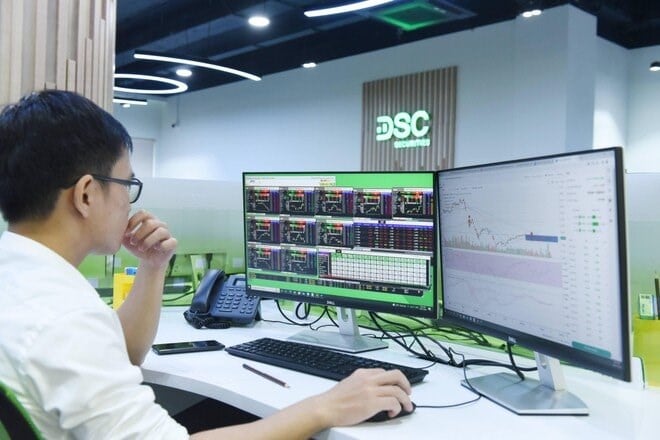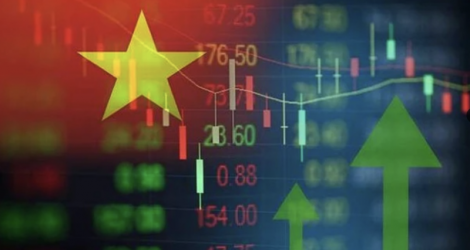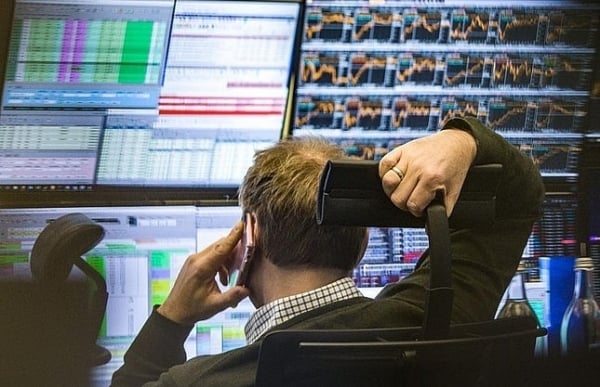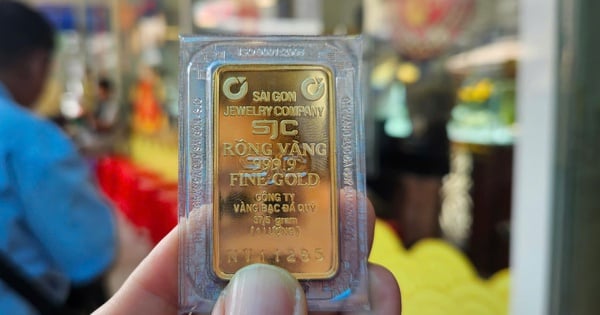
The stock market entered April with a not-so-positive performance, VN-Index entered a correction phase after a long increase since the end of 2023. Last week, VN-Index recorded a week of fluctuating trading around the 1,250 - 1,270 point area with low liquidity and somewhat stagnant cash flow. The average trading value was around VND 19,000 billion, a sharp decrease compared to the previous month.
The decline in liquidity signals caution in the upcoming period of the general market. Meanwhile, the strong net selling trend of foreign investors in the market has been going on for many weeks, significantly affecting the score of VN-Index in recent times.
Exchange rate becomes a hot issue, when the USD/VND exchange rate increases, it also negatively affects the psychology of domestic investors. Looking back at the last two quarters of 2023, due to the opposite direction of monetary policy, VND depreciated sharply against USD (at times down more than 4%). During that period, the VN-Index fluctuated strongly, in the 3 months from August to October 2023 alone it decreased by more than 15% and liquidity decreased. The main reason is that investors are worried that the scenario in 2022 will repeat, when the State Bank sold a large amount of USD to stabilize the exchange rate (equivalent to withdrawing nearly 500,000 billion VND from the system).
Dr. Nguyen Duy Phuong - Investment Director of DGCapital said that with the current exchange rate story, although the pressure of devaluation is quite large and the State Bank continuously issues credit notes to stabilize the exchange rate, the macro balance is generally stable and market liquidity is still abundant, especially in the context of weak credit growth. This means that investors are not under pressure to sell off assets to manage cash flow, so the adjustments of VN-Index are due to psychological factors. Looking back at 2023, VN-Index after falling has recovered quite well, nearly 10% in the last 2 months of the year.
According to statistics from DSC Securities Company, the overall cash flow in the market is on a downward trend and is currently distributed mostly in the two large-cap (VN30) and mid-cap (Midcap) groups. There is still room for further cash flow to increase in these two groups. Meanwhile, the small-cap group is lagging behind. Therefore, investors should limit their investment in small-cap stocks, most of which are businesses with poor fundamentals.
Experts from Kafi Securities Company believe that banking stocks are having the strongest impact and the most positive developments in the market. With the support of the banking group, market sentiment is strengthened and is expected to spread in the next trading sessions. In terms of technical factors, VN-Index has successfully tested the resistance zone of 1,265 points, thereby breaking the downtrend - confirmed when the "exhaustion gap" pattern appeared.
VN-Index opens up the possibility of heading towards the previous resistance zone at 1,300 points. Risk factors still remain such as net selling pressure from foreign investors along with cautious sentiment of investors in the volatile global macro environment causing liquidity to decline, these are factors that need to be closely observed in the coming period, Kafi experts commented.
DSC Securities Company predicts that the market will continue to be in a bull market, but the way it moves will be more unpredictable and volatile than the rapid increase from 1,100 points to 1,250 points. In addition, DSC Securities Company maintains its view that the current market context is still very difficult to find profits with a short-term vision. Instead, investors should determine a long-term vision, that is, buying and holding stocks for at least 3 months from now, the results will come more surely.
Source



![[Photo] Prime Minister Pham Minh Chinh meets with King Philippe of Belgium](https://vstatic.vietnam.vn/vietnam/resource/IMAGE/2025/4/1/be2f9ad3b17843b9b8f8dee6f2d227e7)
![[Photo] President Luong Cuong and King Philippe of Belgium visit Thang Long Imperial Citadel](https://vstatic.vietnam.vn/vietnam/resource/IMAGE/2025/4/1/cb080a6652f84a1291edc3d2ee50f631)
![[Photo] General Secretary To Lam receives King Philippe of Belgium](https://vstatic.vietnam.vn/vietnam/resource/IMAGE/2025/4/1/e5963137a0c9428dabb93bdb34b86d7c)
![[Photo] Close-up of Vietnam's sniffer dog team searching for earthquake victims in Myanmar](https://vstatic.vietnam.vn/vietnam/resource/IMAGE/2025/4/1/d4949a0510ba40af93a15359b5450df2)



























































































Comment (0)